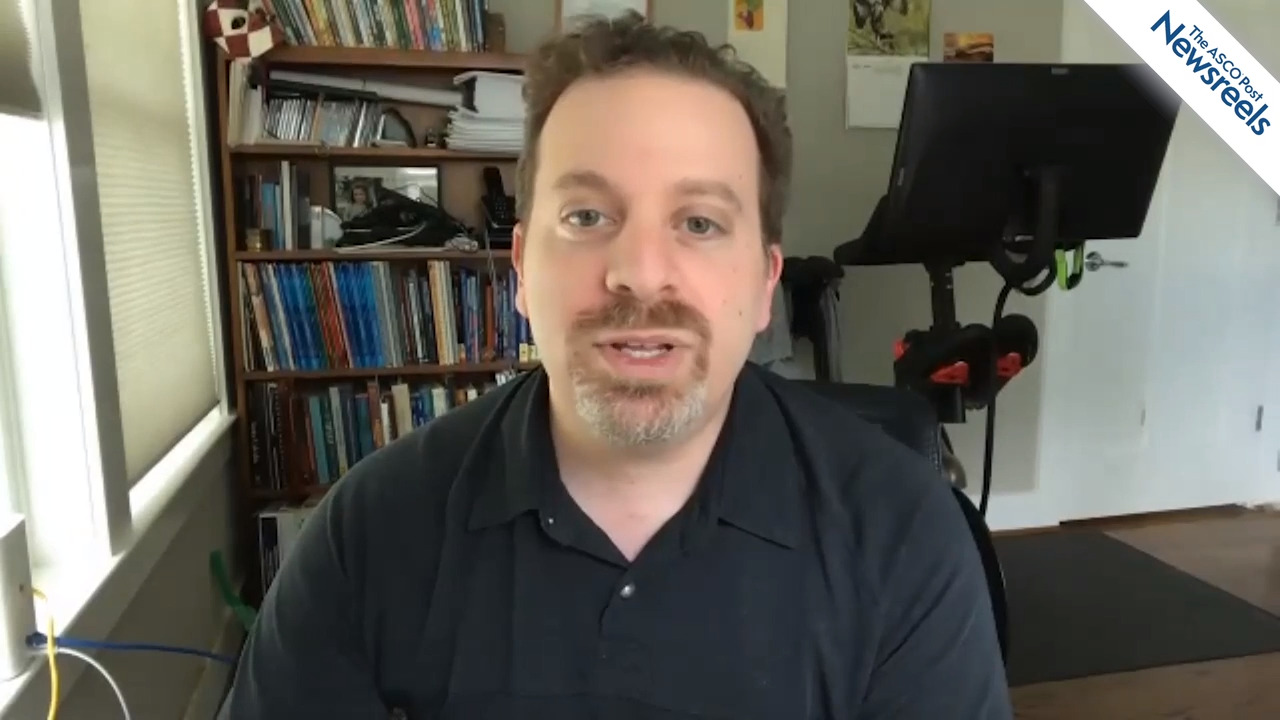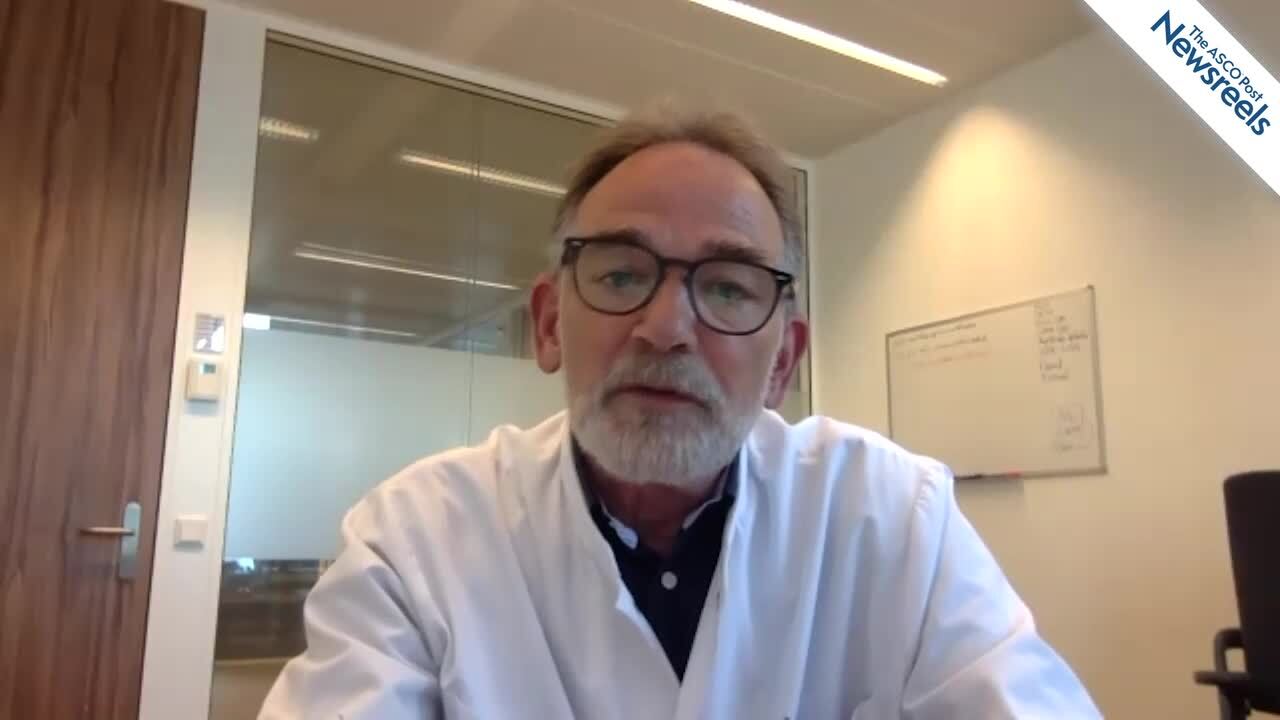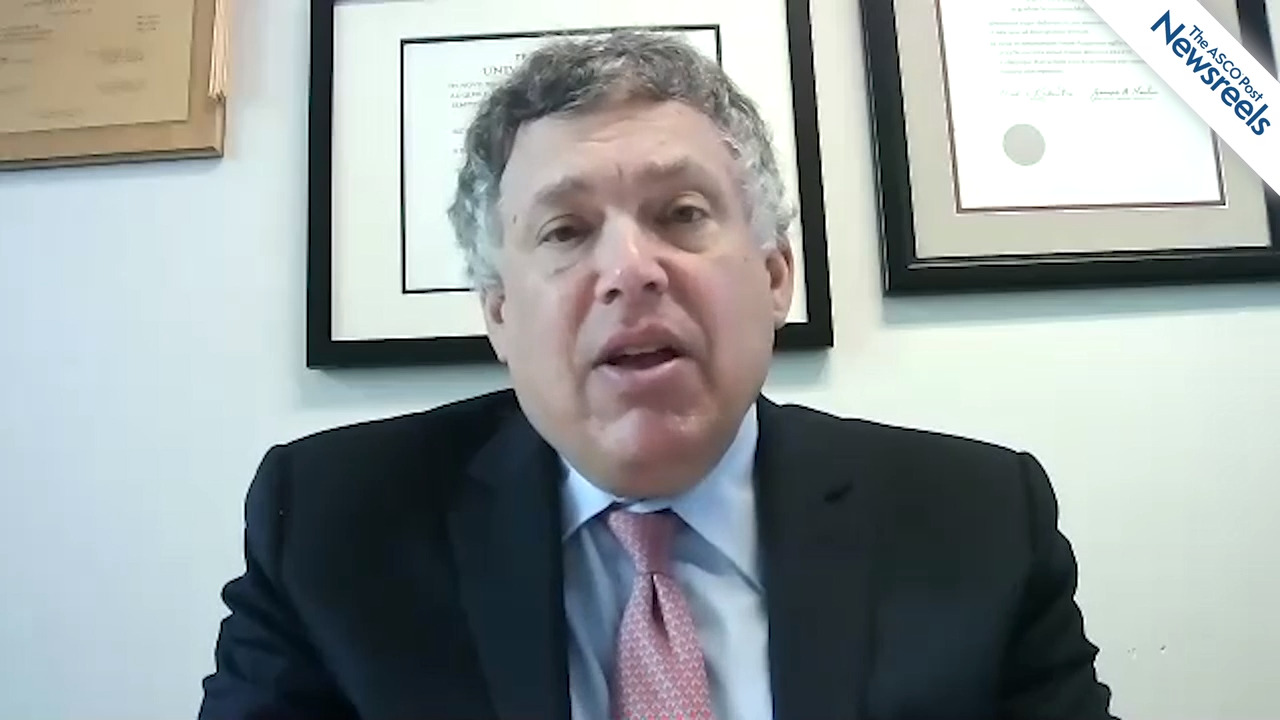Nirav Niranjan Shah, MD, on DLBCL: Autologous Transplant vs CAR T-Cell Therapy
ASCO20 Virtual Scientific Program
Nirav Niranjan Shah, MD, of the Medical College of Wisconsin, explores whether autologous transplantation, in patients with relapsed diffuse large B-cell lymphoma who achieve only a PET/CT-positive partial remission, is appropriate in the era of CAR T-cell therapy (Abstract 8000).
The ASCO Post Staff
Tingyan Shi, MD, PhD, of Zhongshan Hospital, Fudan University, discusses study results that showed secondary cytoreductive surgery in selected patients extended progression-free survival and might contribute to long-term survival (Abstract 6001).
The ASCO Post Staff
Jeremy L. Warner, MD, of Vanderbilt-Ingram Cancer Center, discusses data from the COVID-19 and Cancer Consortium cohort study, which included patients with active or prior hematologic or invasive solid malignancies, reported across academic and community sites (Abstract LBA110).
The ASCO Post Staff
Egbert F. Smit, MD, PhD, of the Netherlands Cancer Institute, discusses interim results from the DESTINY-Lung01 trial of fam-trastuzumab deruxtecan in patients with HER2-mutated metastatic non–small cell lung cancer. The data show clinical activity with high overall response rates and durable responses (Abstract 9504).
The ASCO Post Staff
Howard A. Burris III, MD, FACP, FASCO, talks about some of the reports of research developments he is looking forward to and how future conferences could incorporate virtual presentations.
The ASCO Post Staff
Roy S. Herbst, MD, PhD, of Yale Cancer Center, discusses data from the ADAURA study, which showed that compared with placebo, osimertinib as adjuvant therapy after complete tumor resection reduced the risk of disease recurrence or death by 79% in patients with non–small cell lung cancer (Abstract LBA5).





